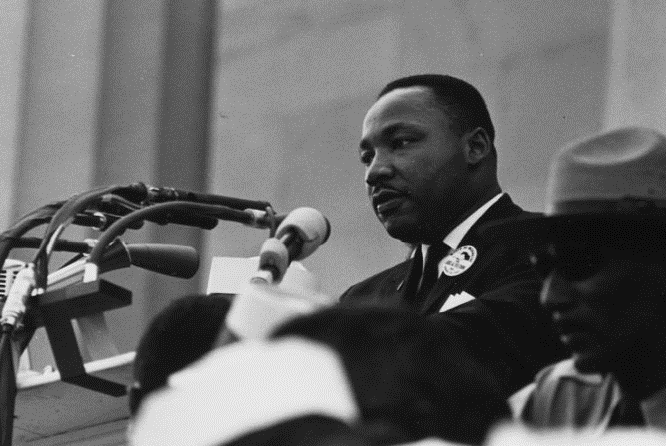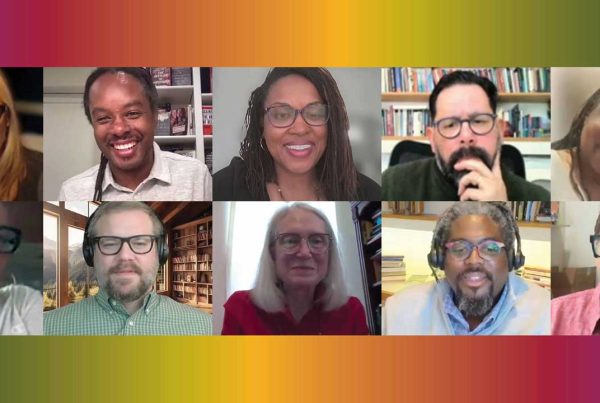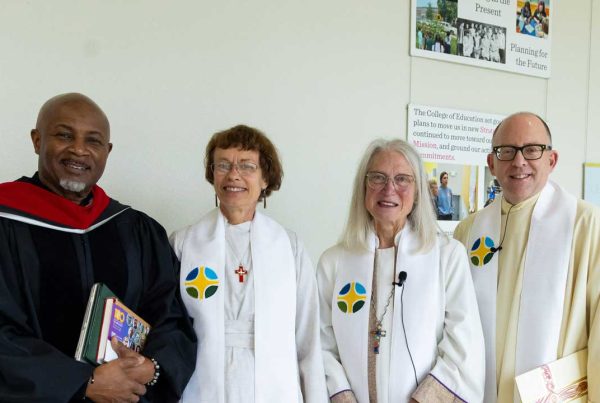 On Monday, January 18th, 2021, the United States celebrates Martin Luther King Jr. Day. The CTS community regularly honors and studies the lives of transformative leaders like King, but on this day in particular we stop to consider his life and legacy – especially for what they might say to us today.
On Monday, January 18th, 2021, the United States celebrates Martin Luther King Jr. Day. The CTS community regularly honors and studies the lives of transformative leaders like King, but on this day in particular we stop to consider his life and legacy – especially for what they might say to us today.
A central figure in the Civil Rights Movement, Rev. Dr. Martin Luther King Jr.’s leadership and vision compelled many to resist the oppressive reach of racist Jim and Jane Crow policies and the violent legacy of white supremacy in the United States. A tireless advocate for justice and equity, King worked to raise awareness of the interconnections between economic and racial inequalities at home and the forces of militarism and imperialism abroad. His homiletical genius, prophetic voice, and commitment to nonviolent social change continue to inspire today.
Martin Luther King Jr. Day offers the opportunity to reflect on King’s incredible legacy, to learn from and be encouraged by his wisdom and insight, and to think through how we might take meaningful steps toward realizing his vision of the “Beloved Community.”
Because of the COVID-19 pandemic, CTS is unable to celebrate the important holiday as it has in the past, and so we offer a recording of Prof. Frank Thomas‘ sermon in chapel on the occasion last year. In the sermon, Prof. Thomas reflects on the forces of violence that took King’s life and continues to take lives, and on his relentless moral courage and imagination.
To complement his sermon, Prof. Thomas offers the following, which is adapted from his recent book, How to Preach a Dangerous Sermon:
Requiem
It seems that too often those who have the moral imagination to see freedom and equality for the entire human family, and actually embody it, and take concrete steps to make it a reality, are often persecuted and even killed. This was certainly the case for Martin Luther King Jr., and many others who also could be named. This missive is entitled, “Requiem.”
A Requiem or Requiem Mass, also known as Mass for the Dead, is a mass in the Catholic Church offered for the repose of the soul or souls of one or more deceased persons, using a particular form of the Roman Missal. “Requiem” is the accusative singular form of the Latin noun requies, “rest, repose.” Requiem also came to be defined as any sacred composition that sets to music religious texts that would be appropriate at a funeral, and has subsequently been applied to other musical compositions associated with death, dying, and mourning, even when they lack religious or liturgical relevance.
Andrew Lloyd Webber composed Requiem, a Requiem Mass, after learning about the story of a Cambodian boy who was forced to murder his mutilated sister or be executed himself, and the death of a journalist who had interviewed Webber and was killed in IRA conflicts in Ireland. Both tragedies struck nerves deep to his core and Webber wrote music as a way to cope with his grief and loss. When he finished Requiem, he dedicated it to his father who passed away in 1982. Sarah Brightman, in her performance of the “Pie Jesu,” the most well-known part of the Requiem, says Webber dedicated it to close friends and family members who are no longer with us. In the “Pie Jesu,” Webber combined the text of the traditional Pie Jesu with that of the version of the Agnus Dei and I paraphrase:
Agnus Dei,
Qui tollis peccata mundi, Dona eis requiem, Sempiternam Requiem.Lamb of God,
Who takes away the sins of the world, Give them rest, Everlasting
Rest.May the God, who takes away the sin of the world, grant to Martin Luther King, Jr. and all who are persecuted and even die in the struggle for freedom and equality everywhere, everlasting rest.





